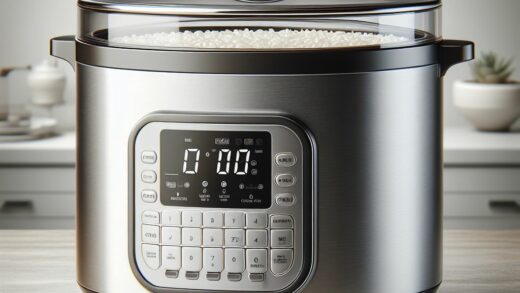Electric rice cookers have become a staple appliance in many kitchens around the world due to their convenience, ease of use, and ability to consistently cook perfect rice. However, the question often arises – is using an electric rice cooker good for your health? In this article, we will delve into the health implications of using an electric rice cooker and provide you with an in-depth analysis.
Health Benefits of Using an Electric Rice Cooker:
- Nutrient Preservation: Electric rice cookers are designed to cook rice evenly and thoroughly, ensuring that the essential nutrients present in rice are retained during the cooking process. Unlike traditional stovetop cooking methods that may result in nutrient loss through excessive boiling or uneven cooking, the controlled environment of a rice cooker helps preserve the nutritional integrity of the rice.
- Time and Energy Efficiency: Electric rice cookers are a time-saving appliance that allows you to prepare rice with minimal effort. By simply adding rice and water to the cooker and selecting the appropriate settings, you can focus on other tasks while the rice cooks. This time-saving feature may encourage individuals to opt for homemade meals over fast food or processed options, promoting overall health and well-being.
- Precise Cooking Control: Most modern electric rice cookers come equipped with programmable settings that cater to different types of rice such as white rice, brown rice, sushi rice, and more. This precision in cooking control ensures that the rice is cooked to perfection, avoiding undercooked or overcooked grains that may impact digestibility and nutrient absorption.
- Versatility and Convenience: Electric rice cookers offer versatility beyond cooking rice alone. Many models come with additional functionalities such as steaming trays for vegetables and proteins, soup-making settings, and even slow-cooking capabilities. This versatility allows you to prepare a variety of nutritious dishes using a single appliance, reducing the need for multiple pots and pans.
Health Concerns of Using an Electric Rice Cooker:
- Non-Stick Coatings: Some electric rice cookers feature non-stick coatings in the cooking pot to prevent rice from sticking. While non-stick surfaces make cleaning easier, there are concerns about the potential health risks associated with these coatings, particularly when they are scratched or damaged. To mitigate this risk, opt for rice cookers with ceramic or stainless-steel cooking pots that are free from harmful chemicals.
- Caloric Intake: Rice is a high-carbohydrate food that can contribute to caloric intake if consumed in large quantities. Electric rice cookers make it convenient to cook rice in bulk, leading to potential overconsumption if portion sizes are not monitored. Be mindful of your serving sizes and complement rice with a balanced mix of vegetables, proteins, and healthy fats to create a well-rounded meal.
- Food Safety: Proper maintenance and cleaning of your electric rice cooker are essential for food safety. Residues left behind in the cooker can harbor harmful bacteria or mold growth, contaminating future batches of rice. Regular cleaning of the cooking pot, lid, and other components in accordance with the manufacturer’s instructions will help prevent foodborne illnesses.
In conclusion, using an electric rice cooker can be beneficial for your health when used in conjunction with a balanced and varied diet. By leveraging the time-saving features, nutrient retention capabilities, and versatility of an electric rice cooker, you can enjoy delicious and nutritious meals without compromising your well-being. Remember to practice proper maintenance, portion control, and food safety measures to make the most out of your electric rice cooker and support a healthy lifestyle.


